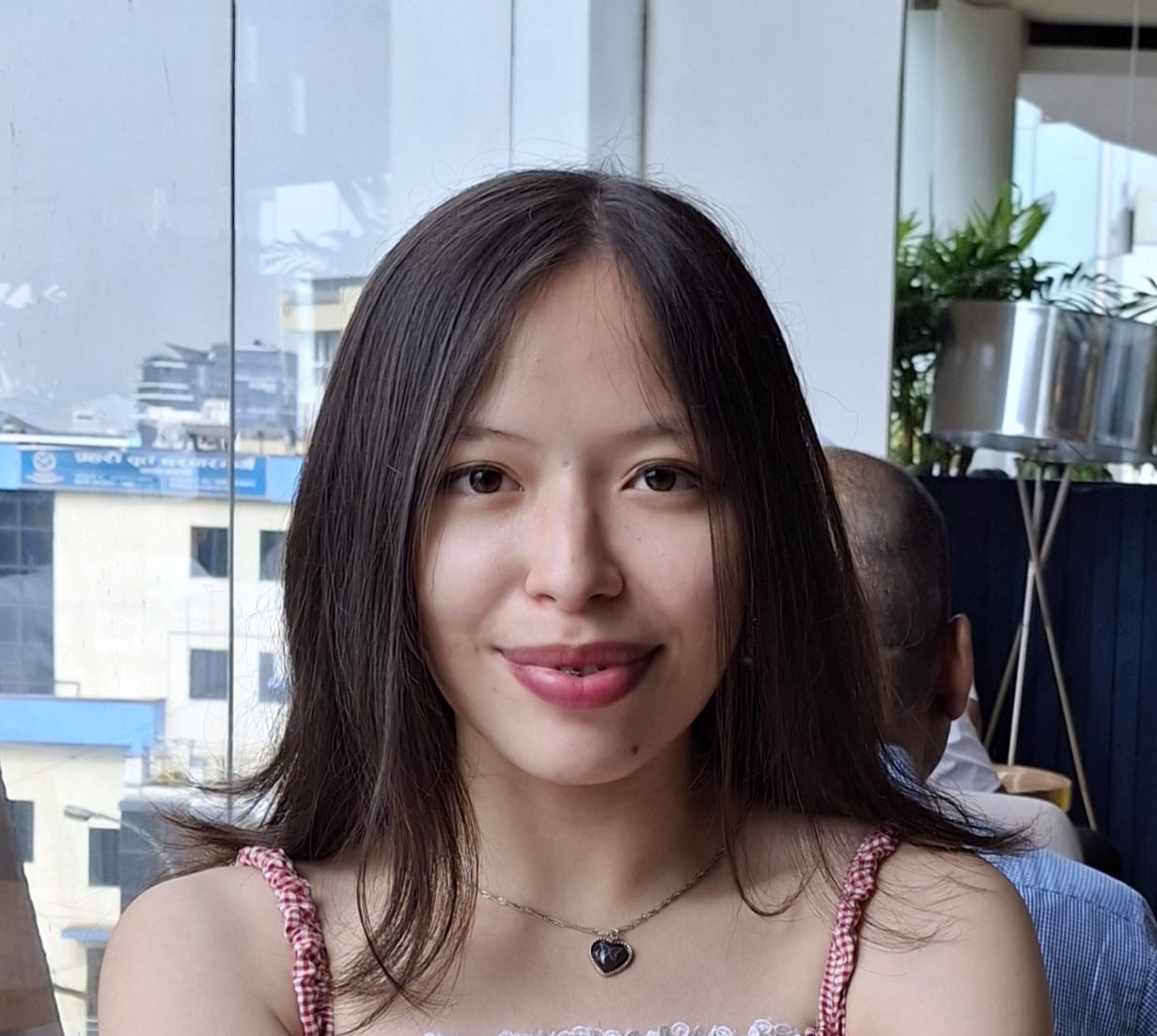Culture & Lifestyle
A triad of cinematic delights
The Post brings to you reviews of three films screened at this year’s Nepal International Film Festival: ‘Bulaki’ (Nepal), ‘She Wins’ (Poland) and ‘Everything is Nothing’ (Bangladesh).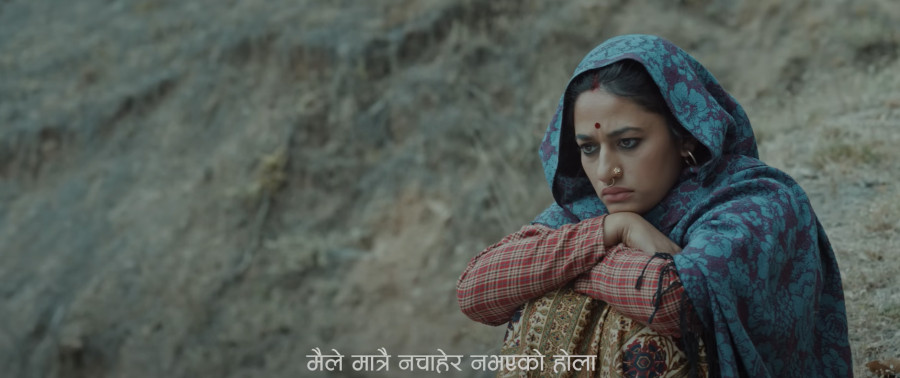
Manushree Mahat, Anish Ghimire & Aarati Ray
Bulaki
By: Manushree Mahat
The film ‘Bulaki’, directed by Laxman Sunar, pulls you into the rural village life of the western Karnali region of Nepal. The Maoist insurgency is ongoing—although the significance of this is remiss besides marking the period the movie is set in. In fact, the focus of the film is not war and insurgency, it’s the Jaari tradition, its roots and its consequences. ‘Bulaki’ is a simple story that depicts the complexities of human life and reality driven by the constraints and stakes of a patriarchal society. And it does so well.
The film's strength lies not in extravagant storytelling or glamour, but in its commitment to simple yet powerful narratives, supported by the compelling performances of its cast and breathtaking cinematography.
The narrative follows Hira (Surakshya Pant), a woman overwhelmed by the demands imposed upon her by her mother-in-law and husband, Chandre (Naren Khadka). Hira dutifully fulfils her responsibilities, from gathering firewood to washing clothes by hand and cooking meals over an open fire. These scenes offer glimpses into the everyday life of the village, capturing its essence without unnecessary theatrics.
Through Hira’s struggles, and those of other women in the village, the film explores the repetitive and demanding roles expected of them. This is exemplified when Chandre promises to marry off his young sister, Maina, upon his return—a stark reminder of the societal norms dictating women’s lives in the village.
Every character grapples with the consequences of their decisions, navigating through shades of grey. Hira’s choice to flee her oppressive home and community evokes sympathy, but so does the heartbreak endured by her betrayed husband, Chandre. Surakshya Pant portrays Hira’s loneliness with great authenticity, capturing the emptiness that defines her existence.
The writing of Hira’s character arc feels hollow towards the end—becoming a vessel of a society where she is a puppet to the whims of the outdated traditions of Jaari. While the first half delves into Hira’s emotional journey—from frustration to fleeting moments of happiness and romance, to overwhelming despair—the latter part shifts focus to explore the broader impact of Jaari on families and society.
Both Biraz Bista, who plays Ratne, the man who falls in love and elopes with Hira, and Naren Khadka have personalised their roles to bring the dynamicity the script asks of them. Whatever little drama the film has is centred on these confrontations between the angry, red-rimmed Chandre and the soft, ever-romantic Ratne. And in these too, the raw display of unfiltered anger from Chandre displays Khadka’s astute grasp on his role.
The writing asks you to question the actions of both Hira, who is driven by loneliness, and the anger-fuelled Chandre. Eloping is rarely a good decision, but did Hira stand a chance against the growing demands of her family and society? Chandre, in his rage, beats up Ratne’s innocent brother and haggles the Jaari money while treating Hira as an object. Are his actions made of self, or the amalgamation of the oppressive traditions, and the betrayal he experiences?
There are layers and multitudes of humanity in the film’s direction and writing. Perhaps one of the few things it falls short on is the characterisation of Ratne and Maina. Although Bista seems to ‘get’ the dangerously hopeless romantic nature of his character, it’s the one-dimensional writing of Ratne that falls flat in the story. Ratne sees Hira, hears her sing, talks to her a few times—barely enough to warrant the encouragement he mounts on her to elope with him, and then spends the rest of the film either lost between the Jaari negotiations or reassuring Hira.
On the other hand, Maina—who has a charming presence on screen—disappears entirely in the second half despite her significant role as Hira’s confidante.
Other than a few minor flaws, such as misplaced audio cues during the dramatic moments, Bulaki has a good grasp of what it’s trying to portray. There are no happy endings in this toxic immersion of outdated traditions and their patriarchal values.
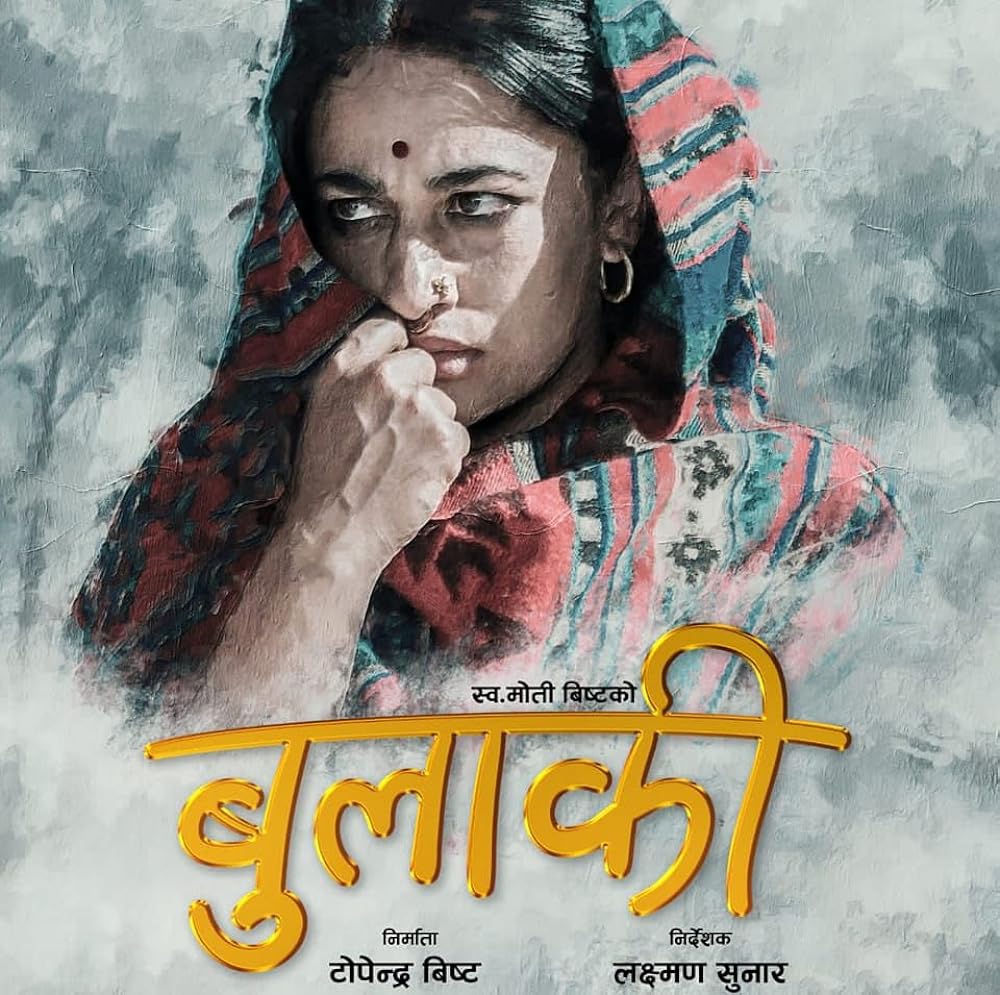
Bulaki
Director: Laxman Sunar
Cast: Surakshya Pant, Naren Khadka, Biraz Bista
Language: Nepali
Year: 2023
Duration: 1 hour 45 minutes
Reimagining motherhood
By: Aarati Ray
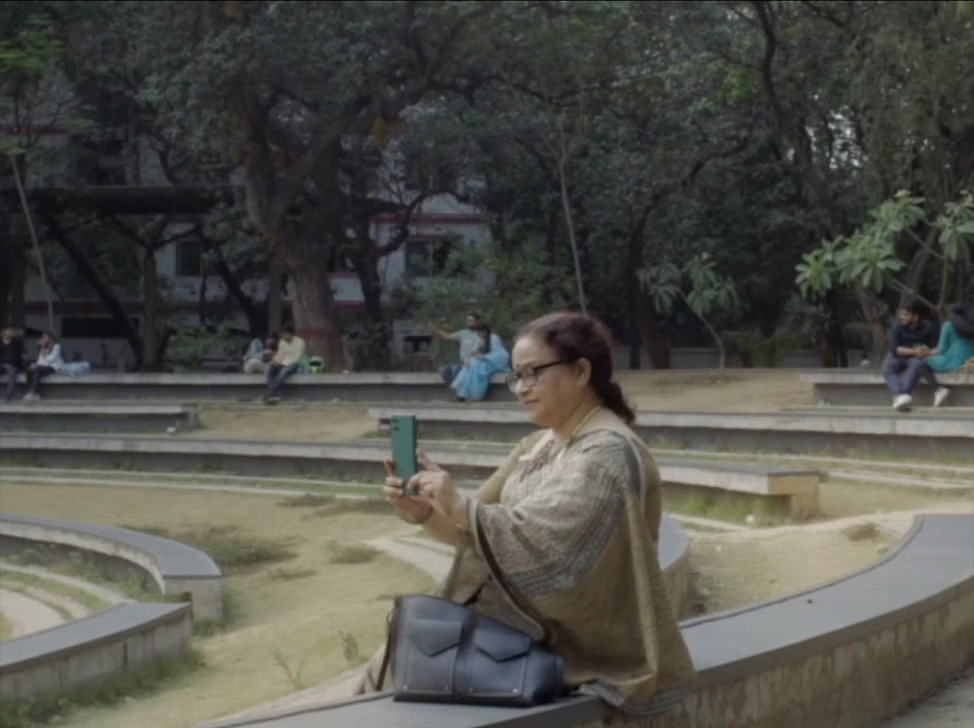
Have you ever heard the tale of the mother bird and her chicks? It’s a story often told to illustrate a mother’s love, where she nurtures her babies until they grow feathers and learn to fly. The story usually ends happily, with the fledglings leaving the nest with strong wings.
But does the tale truly have a completely happy ending? That’s the question that struck me while watching Bangladeshi musician turned filmmaker Arafat Mohsin’s short film, ‘Everything is Nothing’, at the closing of NIFF.
To be honest, expecting a dialogue-light film, I was prepared for a bit of boredom. However, like many in the audience, I was taken aback by the sudden urge to rush back home and embrace my mother tightly, asking, “Mum, are you alone in the nest? You helped me soar towards my dreams, but what about your own?”
The 21-minute film follows Apon, an empty nester mother, as she navigates life after her children have left home.
Don’t anticipate grand action or elaborate settings in this film. With a limited budget, Mohsin crafts a simple yet impactful narrative of a lesser-explored aspect of a mother's life: the empty nest phase.
We witness Apon keeping herself occupied amid the deafening silence that now fills her home without her children’s laughter. Yet, despite her efforts, she is left feeling empty, much like her abandoned nest.
Mohsin’s cinematography employs a slow and subtle technique to convey the passage of time, mirroring Apon’s newfound solitude. Although the dialogue is sparse, the music’s rhythm keeps the audience engaged.
Initially, the film may seem solely focused on the empty nest syndrome—a sense of loss and loneliness experienced by parents when their children leave home for various reasons. This is especially prevalent in Nepali and South Asian cultures, where mothers often shoulder the primary caregiving responsibilities.
By spotlighting a single empty nester mother, the film sheds light on a condition that is often overlooked, as the departure of young adults from the family home is deemed a normal event.
Nevertheless, the departure of children from the family home can affect full-time stay-at-home mothers big time, particularly in South Asian cultures, where a mother’s worth is often judged solely by her ability to nurture and protect her children, embodying the ideal mother figure. However, Mohsin’s film isn’t merely about a mother feeling empty, lonely and purposeless without her children.
In the film, although Apon experiences a sense of emptiness, she also begins to grasp the underlying reasons for her feelings. I interpret the movie less as a depiction of a mother losing her sense of purpose and more as a journey of transition from waiting at the empty nest to rediscovering one’s own identity and freedom.
While implicit, the film conveys the epiphany of finding true purpose in life, establishing an identity beyond motherhood, and understanding that a mother’s life continues even after her children have left. This realisation impacts not only parents like Apon but also serves as a reminder for children to check in on their parents who may be experiencing similar emotions.
Mohsin’s decision to make the film dialogue-free adds depth to its commentary on how society often overlooks mothers’ identities after their children have grown up, symbolising the silent struggles and internal conflicts many mothers face. Additionally, Mahmuda Begum’s portrayal of Apon, Mohsin’s mother, intensifies the emotional impact of Apon’s journey for the audience.
Even the film’s title, ‘Everything is Nothing’, prompts viewers to contemplate its message. While it may initially suggest a lack of meaning in a mother’s actions, I interpret it as a reflection on moving beyond despair to find purpose and meaning in life.
Although the film’s minimalistic approach effectively conveys its powerful message, it may appeal more to a specific audience niche. In an era of shrinking attention spans, a dialogue-free film needs to offer more than just a message to captivate viewers.
Nevertheless, this journey of self-discovery and maternal strength is a must-watch for parents and children alike, and its screening during the month of March adds to its significance.
The film was selected for festivals, including the 10th Goa Short Film Festival, Alibagh Short Film Festival, Himachal Short Film Festival, and International Kolkata Short Film Festival.
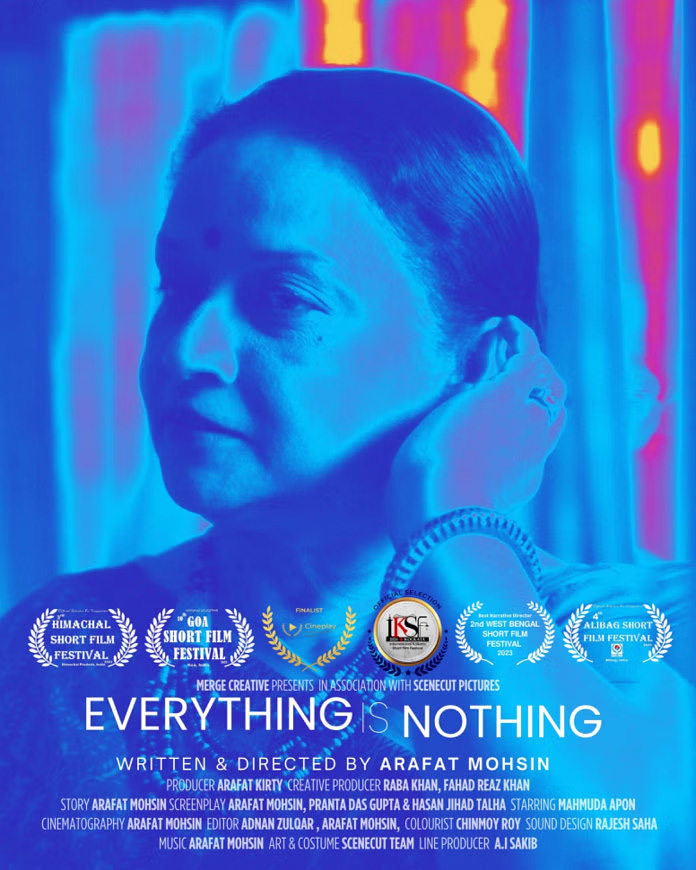
Everything is Nothing
Director: Arafat Mohsin
Cast: Mahmuda Begum
Language: Bengali
Year: 2023
Duration: 21 minutes
A personal look at addiction
By: Anish Ghimire
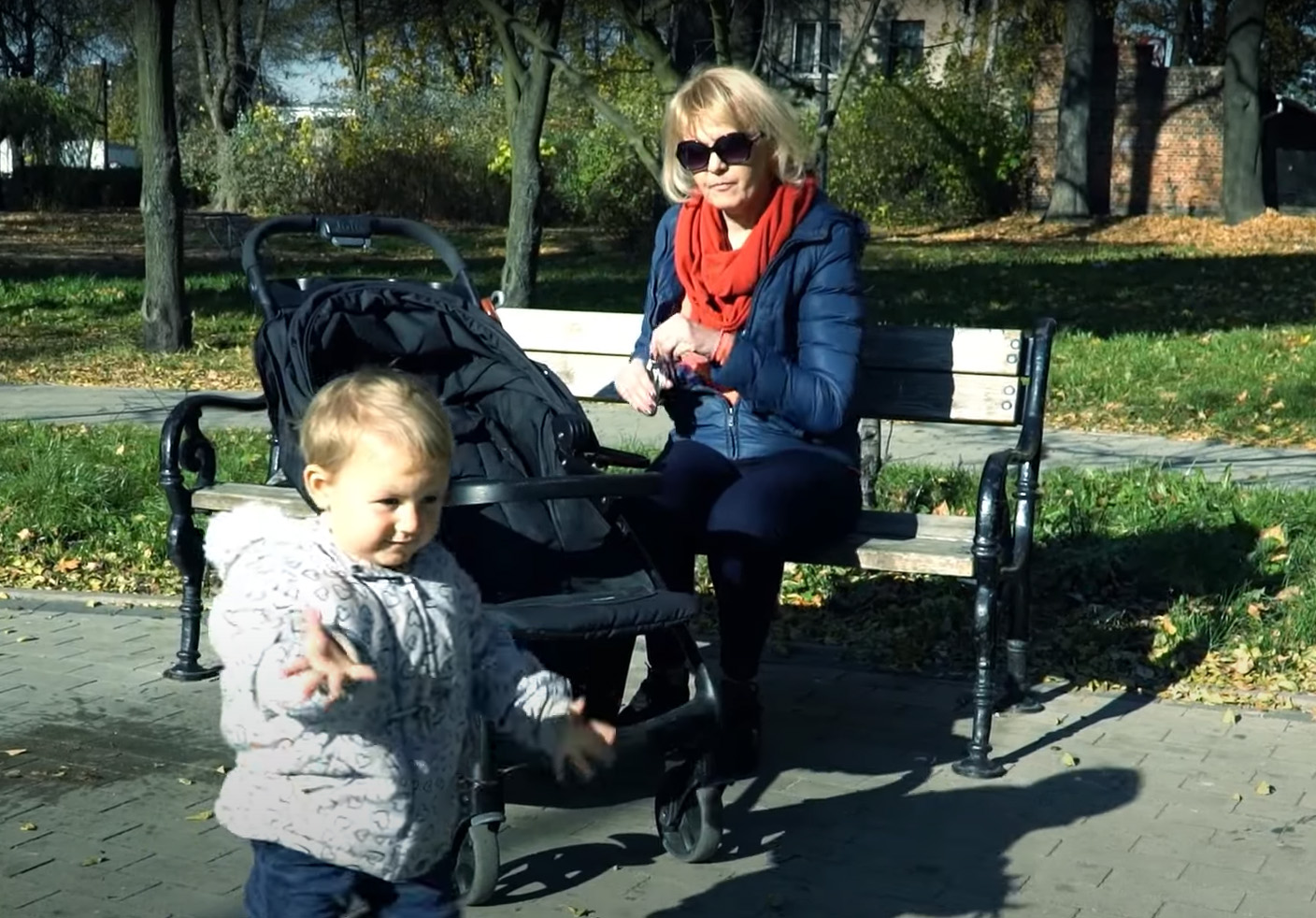
The Polish film begins with a weary-looking Kasia Kowalska seated on a chair, facing sideways, prepared to share her story. Her eyes are tired, with dark circles beneath them, and her hair is dishevelled.
Many nights, she wakes up sweaty and hungover, rushing to the bathroom to splash cold water on her face. As she gazes at herself in the mirror, she feels a sense of disgust. Sobriety brings the harsh reality crashing down on her, accompanied by the guilt of her drinking habits. Yet, to escape this guilt, she turns to alcohol once more. “We drink to forget our problems, and life goes on,” she reflects.
It all started when the man she loved and married, transformed overnight into someone intolerant and abusive. To cope with her fear, she turned to alcohol one day and found temporary relief. Here, the film touches upon the root of her addiction.
Addiction can have various origins, often serving as a means to escape reality or numb emotional pain—both of which resonate with Kowalska’s experience. Over the years, drinking became a regular habit, even casual.
In some scenes, her daughter plays in the park while Kowalska finds herself reaching for a bottle. Amid her child’s belongings, there lie numerous pocket-sized vodka bottles. The consequence of her actions manifests as physical pain, endured to avoid psychological suffering.
Director Zbigniew Gajzler appears to possess a deep understanding of the complexities of substance abuse, self-harm and addiction, evident in the film’s dialogue, cinematography, and haunting musical score. Even as Kowalska walks in the sunshine, sombre music plays in the background, representing the tight grip of addiction on her life.
Gajzler also explores how addictions can pass through generations. Kowalska’s grandmother and mother both struggled with alcoholism, suggesting that habits and coping mechanisms can be inherited. However, this isn’t universally true, as seen in the story of two brothers—one battling alcoholism and the other not. When questioned about their differences, they attribute them to their father’s alcoholism.
Children often unconsciously adopt their parents’ habits and behaviours. Kowalska inherited a habit from her mother but decided to break the cycle for her daughter's sake, a courageous step towards breaking the generational curse.
Yet, breaking free wasn’t easy. Abandoning her habitual lifestyle took its toll. One night, she cleared her apartment of every bottle, pouring the alcohol down the drain despite knowing she might need it later. Predictably, withdrawal symptoms set in, causing her to shake and whimper.
Desperate to numb the pain, she searched her kitchen and found a bottle of vinegar resembling vodka. Without hesitation, she drank it, her voice trembling as she recounts this moment, hinting at the heartbreak she endured.
These experiences of heartbreak propelled her towards redemption. Faced with a choice between the pain of discipline and the pain of regret, Kowalska chose discipline, driven by something worth fighting for—a reason to be strong.
One morning, she stands before the mirror with her lipstick, seeing herself in a new light. As she writes, “I am starting a new life” in the mirror, her perspective shifts. These words aren’t just markings; they symbolise her resilience and determination for a brighter future.
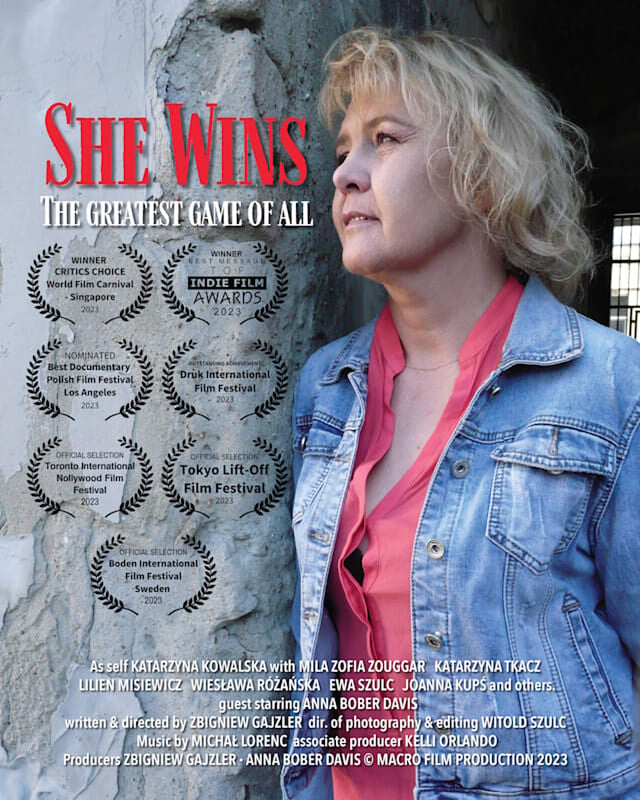
She Wins
Director: Zbigniew Gajzler
Cast: Kasia Kowalska
Language: Polish
Year: 2023
Duration: 47 minutes




 10.21°C Kathmandu
10.21°C Kathmandu